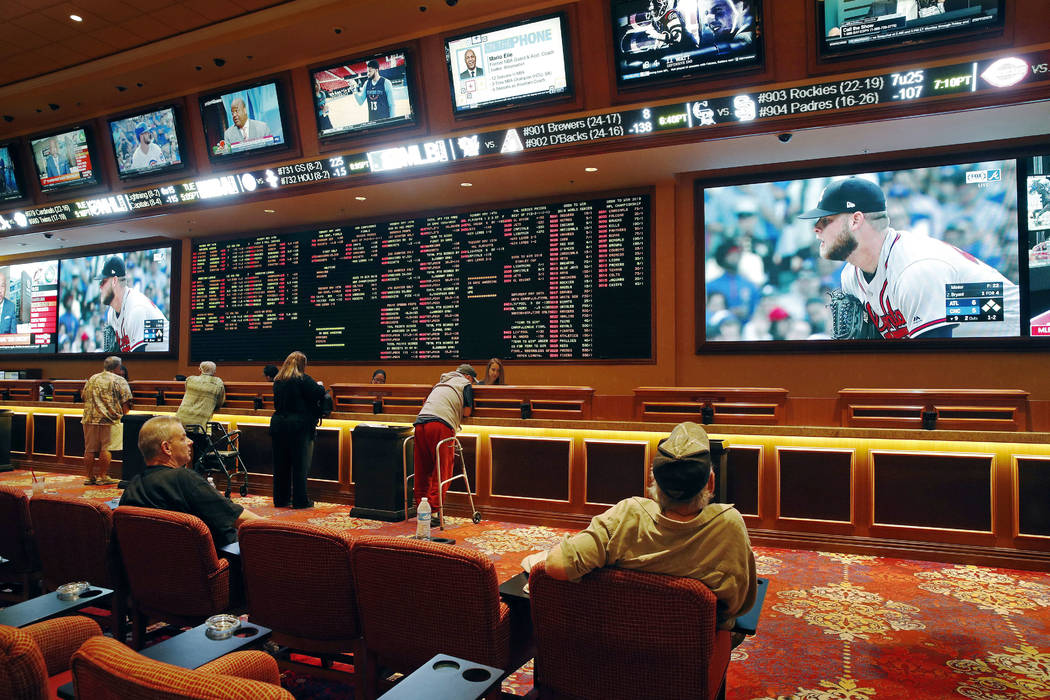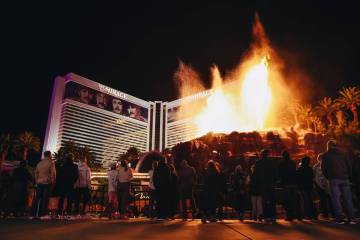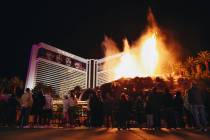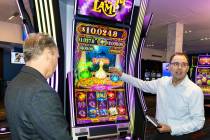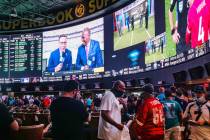Lawmakers, pro sports officials need educating on sports betting
For months, representatives of the gaming industry have marveled at how sports leagues, particularly the NBA, have made such great strides toward accepting sports wagering as mainstream entertainment.
On Thursday, the NFL demonstrated that there’s still a lot of work to be done to educate league leaders — and representatives of Congress — on how sports betting works.
The testimony presented by Jocelyn Moore, executive vice president of communications and public affairs for the NFL, to a House Judiciary subcommittee shows the league still doesn’t seem to get that a system that has flourished in Nevada for decades doesn’t need any federal help to make it better.
It’s been functioning so well, in fact, that other states are clamoring to get in on the action — and some have.
Moore’s testimony suggests that the NFL, the same league that ultimately authorized the Raiders’ move to Las Vegas in 2020, hasn’t come around on some of the finer points of modern sports betting.
Her prepared testimony didn’t go so far as to suggest sports books pay an “integrity fee,” as the NBA once sought. But it did ask for oversight that could ultimately drive bettors to illegal bookmaking operations. And some of the NFL’s suggestions to the subcommittee already are in play in legal books.
The NFL said it wants sports books to use official league data. Point totals, yards gained, fumbles lost — all of those statistics already come directly from the NFL, are broadcast and are used by the books.
The league wants to enforce age limits on sports betting. Done. It’s 21 in Nevada. Everybody knows that.
The league wants to require operator licensure and auditing. NFL executives clearly have never attended a licensing hearing or sifted through the state Gaming Control Board’s volumes of tax and audit records. They’re probably larger than the NFL’s statistical database.
One other NFL ask is “to preclude risky betting fixtures.” Those are the in-game bets that are becoming more popular as books expand their technological holdings.
“To address concerns regarding risky betting fixtures, we encourage Congress to allow professional and amateur sports organizations to identify which types of bets simply pose too significant a risk to the integrity of sports and to work with regulators not to authorize them,” Moore said.
In other words, the league wants a say in what kind of bets the books take.
Moore’s point was that the NFL doesn’t want to start seeing bets on how many flags a referee throws in a game — which, technically, the league already monitors in statistics showing how many penalties are assessed and their yardage.
It also should be noted that Nevada already has a mechanism in place for leagues to request that certain games and wagers not be taken. Those requests are debated and adjudicated by the Nevada Gaming Commission.
Would the betting world be a better place if some types of bets and rules were consistent from state to state? Of course.
But it shouldn’t take an act of Congress to make that happen. That’s something the American Gaming Association, which testified against national sports regulation Thursday, can bring about.
Last week’s hearing was timely in that the AGA is about a week away from conducting its Global Gaming Expo. The association has indicated that the rapid changes in sports wagering will be a key topic at the event Oct. 8-11 in Las Vegas.
Developing consistencies across borders with decisions from people who know the industry — not unfamiliar lawmakers — should be a leading discussion at G2E.
Contact Richard N. Velotta at rvelotta@reviewjournal.com or 702-477-3893. Follow @RickVelotta on Twitter.



